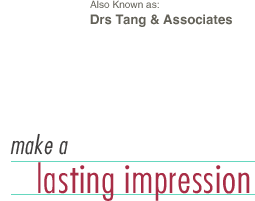
Wisdom Tooth Removal

Medisave funds can be used for wisdom tooth removal, with up to $1250 per tooth, which covers nearly the full cost of the whole procedure.
What are Wisdom Teeth?
Wisdom teeth are the last molar
teeth to erupt in most people.
When may you need to extract your
Wisdom Tooth?
Wisdom teeth are extracted
generally due to two reasons:
- the wisdom tooth has
become impacted (did not emerge properly because of lack of space in
the jaws)
- the wisdom tooth may
become problematic if not extracted.
Problems caused by grown-in wisdom teeth
include:
- Tooth decay caused by food particles
trapped in between the wisdom tooth and the tooth
infront of it.
- Misalignment causing the wisdom
tooth to rub against the tongue or check which causes pain.
- Wisdom teeth are often
hard to clean with toothbrush and
floss. As such plaque can build up around the wisdom tooth and cause
gum disease and bone loss.
A decision to remove the wisdom tooth or not is
usually made after examining the x-ray of the position of the wisdom
tooth and the jaws, and considering the wisdom tooth's
relationship with other teeth.
Removal of a wisdom tooth will require a minor
surgical procedure.
Read
more about Wisdom Tooth extraction here
What to expect during your appointment
Before the wisdom tooth's
removal, an X-ray would be taken to assess the position and shape of
the wisdom tooth.
How is the wisdom tooth removed?
Usually the wisdom tooth is removed under local
anaesthesia.
This will prevent any feeling of pain during surgery when
the dentist is working on the wisdom tooth.
During the surgery, the gum around the wisdom
tooth is cut open and some bone around the wisdom
tooth may be removed. At times the wisdom tooth
may need to be divided into pieces before removal. The gum is then
stitched back in place.
You will come back for an appointment to
check on your condition about 5 days later. At this time, the stitches
will be removed.
Is it painful?
Removal of teeth these days is usually painless due to effective modern
anesthetics. Instruments have now been developed make the procedure as
quick and stress free as possible.
What I need to do after the surgery?
After the operation, when the anaesthetic
has worn off, you may need
to take painkillers. Antibiotics may also be given to prevent infection
of the wound. There is usually some swelling of the cheek which may
last up to 5 days. The swelling may also cause some stiffness of the
jaw.
A little blood oozing should be expected. You can stop this by biting
on a piece of gauze placed on top of the wound, for about 20 - 30
minutes.
- Be gentle while brushing and do avoid the
area around the wound.
- Inform your dentist if you think the
wound does not stop bleeding after 24 hours.
- You may want to place an ice-cold towel
or ice-pack over your cheek to help reduce the swelling.
- Take all the medicines given to you at
the proper time. If antibiotics have been given to you, complete the
whole course.
- Do keep to a soft diet.
- Try not exercise vigorously or do heavy
lifting. Do not smoke or drink alcohol.
- The next day, do rinse your mouth gently
after every meal to remove any trapped food at the wound. Continue to
brush your teeth.
When can I resume my normal activities?
Most patients can go back to their normal daily activities within 2
hours.





 EMF
EMF
 Tel: +65 6226 2296
SMS/Whatsapp: +65 9298 7982 Email:
service.adc@outlook.com
Tel: +65 6226 2296
SMS/Whatsapp: +65 9298 7982 Email:
service.adc@outlook.com